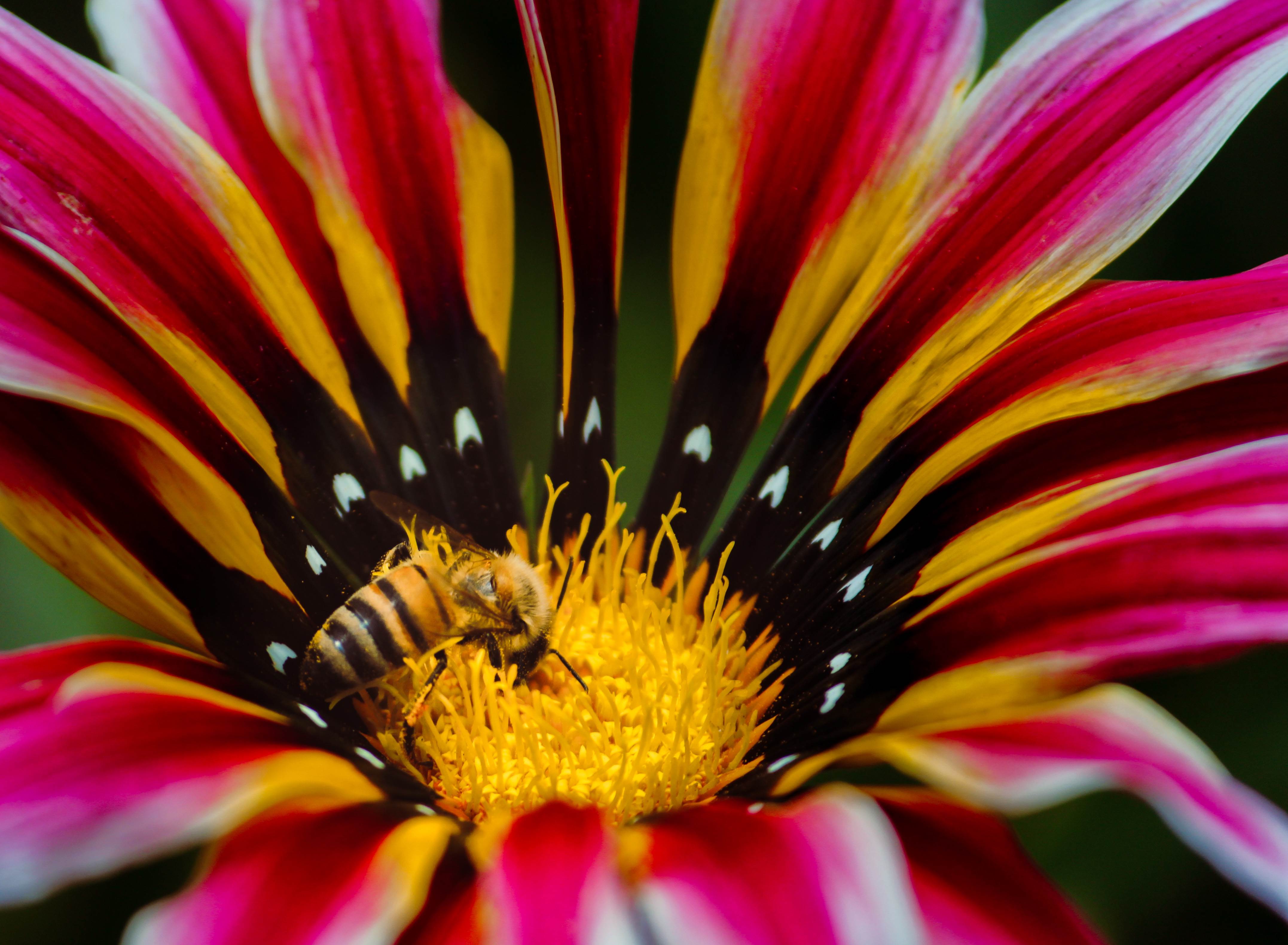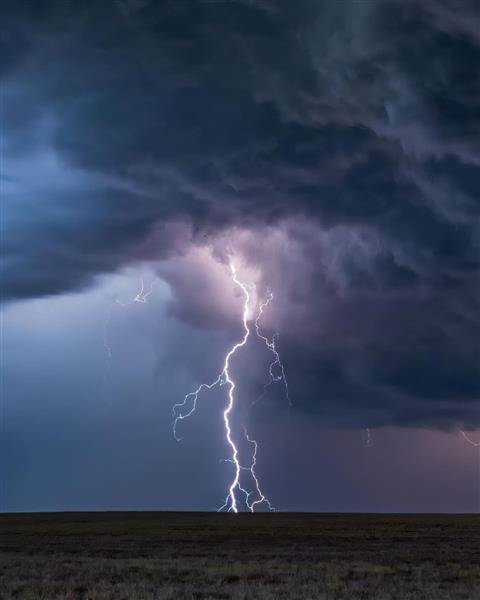There are lives that move so fast we often fail to see them, lives measured in wingbeats and light. In this photograph, frozen in a blink, a honeybee (Apis mellifera) clings to the heart of a Gazania flower, its pollen baskets overflowing like saddlebags of gold. But this is more than just a close up of nature’s beauty, it is a portrait of a planet in motion, powered by creatures we rarely notice and without whom life as we know it would cease to exist.
I captured this moment not just for its vivid color and texture, but for what it represents: the quiet work of pollination, carried out by one of Earth’s most vital organisms.
Bees are keystone species, responsible for pollinating over 75% of flowering plants and nearly one third of the world’s food crops, including fruits, vegetables, seeds and nuts. Without them, ecosystems unravel. Agricultural economies collapse. Food security diminishes.
Yet bees around the world, including in Mexico, are in decline.
In Mexico, more than 2,000 native bee species have been identified, including stingless bees like Melipona beecheii, which have been part of Mesoamerican culture and Mayan agriculture for millennia. But these native populations, along with Apis mellifera (the European honeybee), are increasingly threatened by:
- Pesticide use, especially neonicotinoids and glyphosate-based herbicides
- Habitat loss due to urban expansion and monoculture farming
- Climate change, which disrupts flowering patterns and seasonal cycles
- Disease and invasive species, such as the Varroa destructor mite
According to CONABIO (Mexico’s National Commission for the Knowledge and Use of Biodiversity), some regions of the country have reported pollinator declines of over 30% in the past two decades. For rural and Indigenous communities who rely on beekeeping and wild honey harvest for food, medicine and income, these losses are more than ecological, they are existential.
Protecting bees means protecting the future of life. In Mexico, several conservation programs, including meliponiculture (native bee cultivation), agroecology initiatives and urban pollinator gardens, are gaining momentum. But broader action is needed: legislation that restricts harmful pesticides, education that promotes native plant restoration, and photography that brings awareness to the unseen heroes of our ecosystem.
This image is a small window into a vast system of interdependence. The flower depends on the bee. The bee depends on the flower. And we, in turn, depend on both.
As Canon Creators, we are called to capture what matters, not only what is beautiful, but what is essential. The bee on this bloom is not just a subject, it is a messenger. And its message is clear:
Without pollinators, there is no future.
Let us listen. Let us act. And let us never forget the lives that keep our world in bloom.









Reportar comentario
¿Estás seguro de que quieres marcar este comentario para que lo revise un moderador?
Eliminar comentario
¿Estás seguro de que quieres eliminar tu comentario?
Adjuntar imagen
El tamaño de la fotografía excede el máximo permitido de {{comments.model.imageCommentMaxSize}}Mb
Hace {{c.notificationDate.seconds}} segundos
Hace {{c.notificationDate.mins}} minuto
Hace {{c.notificationDate.mins}} minutos
Hace {{c.notificationDate.hours}} hora
Hace {{c.notificationDate.hours}} horas
Hace {{c.notificationDate.days}} día
Hace {{c.notificationDate.days}} días
Hace {{c.notificationDate.weeks}} semana
Hace {{c.notificationDate.weeks}} semanas
Canon Creators
Hace {{replies.notificationDate.seconds}} segundos
Hace {{replies.notificationDate.mins}} minuto
Hace {{replies.notificationDate.mins}} minutos
Hace {{replies.notificationDate.hours}} hora
Hace {{replies.notificationDate.hours}} horas
Hace {{replies.notificationDate.days}} día
Hace {{replies.notificationDate.days}} días
Hace {{replies.notificationDate.weeks}} semana
Hace {{replies.notificationDate.weeks}} semanas
Canon Creators
Canon Creators
Este mensaje fue eliminado por el administrador
Canon Creators
Este mensaje fue eliminado por el administrador